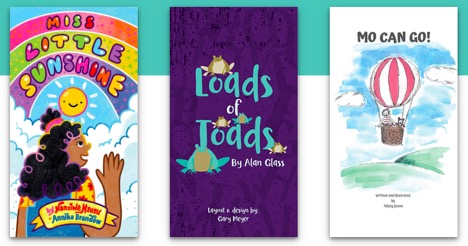
Education dominated the headlines this month, with the 2019 matric results being announced and children across the country going back to school or starting school for the first time.
There is no doubt that quality education is key to helping solve South Africa’s economic and employment crisis.
The core of any successful educational outcome is early literacy learning, and the younger children are exposed to books and reading, the easier it is for them to learn essential literacy skills.
“One of the biggest stumbling blocks in literacy development in South Africa is many young children’s lack of access to books,” said Joanna Mondon, Group Digital Marketing Manager, Hollard South Africa.
“Hollard is committed to empowering children to have a better chance in life. In celebration of World Read Aloud Day on 5 February 2020, we’re inviting South Africans to do their bit to get books into the hands of young kids countrywide through the InstaStory Books initiative, which uses Instagram Stories to create 10-page printable children’s books.”
World Read Aloud Day is a global movement of millions of readers, writers and listeners from diverse communities from more than 170 countries across the world, coming together to honour the power of reading and sharing stories in the spirit of improving global literacy.
It was founded in 2010 by the literacy organisation LitWorld as an opportunity for people to celebrate the joy of reading aloud and advocate for literacy as a fundamental human right.
Research by Australia’s Victoria state government’s Department of Education and Early Childhood Development and the Melbourne Institute of Applied Economic and Social Research has shown that reading aloud to young children daily improves schooling outcomes, irrespective of family and home environment.
There is a strong correlation between parents or caregivers reading to young children and them being literate by 15 and performing a year or two above their peers, according to the research document Let’s Read Them a Story! The Parent Factor in Education, published in 2012 by the Organisation for Economic Co-operation and Development.
According to early childhood development theory, children’s literacy skills follow the developmental progression through particular stages. Being read to regularly and having access to books have a significant impact on how easily young children move through these stages. Literacy development includes a foundation phase for infants, and toddlers and early emergent literacy for preschoolers.
The foundation phase includes a number of activities, including the child touching pictures; holding and carrying books; bringing a book and asking to be read to; pointing to and naming objects; turning pages; mouthing the book or “reading” to themselves; reciting their favourite parts, and noticing and protesting when an adult gets something wrong or leaves out a word.
In the early emergent literacy phase, children learn that reading and writing are activities people engage in. This stage includes the child showing an interest in books and writing; handling books; being aware that books contain stories; listening to stories; reciting phrases or whole stories; showing a preference for certain stories, and scribbling and making letter-like shapes.
In her book Proust and the Squid: The Story and Science of the Reading Brain, literacy advocate Maryanne Wolf identifies the emergent pre-reader phase that happens between six months and six years old. She highlights the importance of reading aloud to children – reading doesn’t just “happen”. “Emerging reading arises out of years of perceptions, increasing conceptual and social development, and cumulative exposures to oral and written language.”
You can support World Read Aloud Day and the effort to bring literacy to children by downloading, printing and folding some amazing books from the InstaStory Book library on the Hollard website, created by South Africans countrywide, and giving these to a preschool, children’s home or charity.
Or you can create your own InstaStory Book to add to the library. Click here for instructions. The Hollard Foundation, in collaboration with the non-profit organisation Kago Ya Bana, distribute these InstaStory Books to underprivileged children across the country.
If nothing else, print and read an InstaStory Book to your young kids on World Read Aloud Day.
It’s all about creating better futures for all South Africans!
Social media:
Facebook: Hollard on Facebook
Instagram: Hollard on Instagram
Twitter: Hollard on Twitter